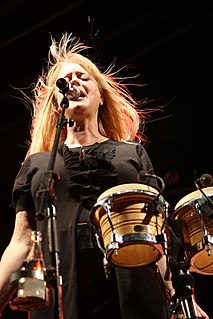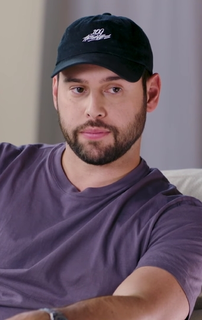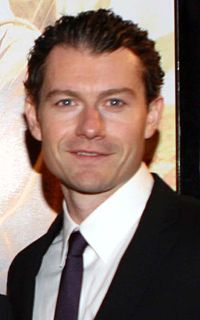A Quote by Alex Tizon
Admitting the truth would have meant exposing us all. We spent our first decade in the country learning the ways of the new land and trying to fit in. Having a slave did not fit. Having a slave gave me grave doubts about what kind of people we were, what kind of place we came from.
Related Quotes
A lot of people write and tell us what The B-52s meant to them - straight, straight-A students, those who were a little awkward, weren't always the ones who fit in. People have told us that just having us and our music was beyond important and really made me feel that what we were doing was worth something big.
There are ways of angling the camera. I don't just use a tripod. The only time I did that was in '88 when I first came out of detox, I spent every day doing self-portraits to fit back into my own skin. I didn't know what the world looked like - what I looked like - so in order to fit back into myself, I took self-portraits everyday to give myself courage and to fit the pieces back together. I used a tripod then.
They did laugh; they did fall in love. And while they were under incredibly oppressive conditions, they constantly were trying to steal pleasures. When you go back to the slave narratives, and you read books like the 'Bullwhip Days' or 'Incidents in the Life of the Slave Girl,' they will share what life was like, and it's a 365-degree view.
Downtown New York, I'm within certain styles of music and I'm also within certain cultural, you know, and literary context. So DJ Spooky was meant to be a kind of ironic take on that. It was always meant to be kind of a criticism and critique of how downtown culture would separate genres and styles because it was ambiguous. You couldn't fit it into anything and that was the point.
The biggest surprise for me, without a doubt, was that the first black people who came to the United States weren't the 20 who arrived in Jamestown in 1619. All of us had been taught that. Well, guess what? The first African came to Florida in 1513. And the huge shock is we know his name, Juan Garrido, and that he wasn't a slave. He was free! This brother was a conquistador who came with Ponce de Leon. He was looking for the Fountain of Youth just like the white people were.
I thought it would fit a niche. I didn't anticipate, nor do I think anybody did, that it would become this global phenomenon, the way that it has. The critics have been so kind and favorable, it has really garnered such wonderful praise, and the numbers have been through the roof. It's actually been quite surreal. I'm still pinching myself because it's amazing. For me, we went to Atlanta and we spent our summer shooting this little zombie show, and it was ours. It was our sweet little zombie show [The Walking Dead], and the world has embraced us.
I had ancestors who were slave-holders, which is a difficult piece of family history to say the least. In a recent New York Times article on the subject of modern attitudes toward our slave-holding past, the writer noted that we all want to be from "innocent origins." I _know_ I'm not. Then again, I suspect most of us are not.



































